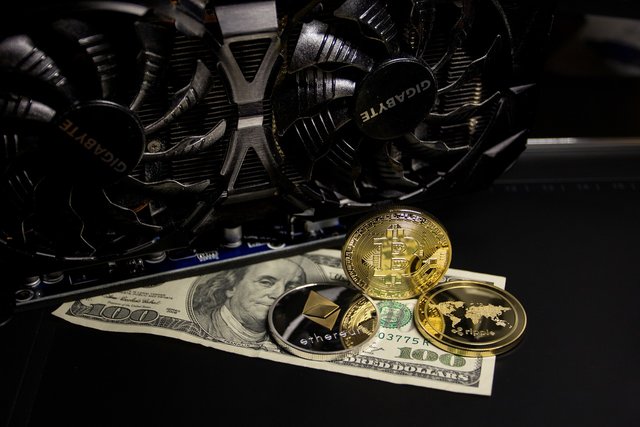Blockchain comes to the real estate industry - News - Sarasota Herald-Tribune

Using the technology behind Bitcoin to enable online sales of fractional shares of residential or commercial real estate
NEW YORK — From the outside, 304 Troutman St. in Bushwick, Brooklyn, looks fairly ordinary. In most ways, it is. But this nondescript three-story, five-unit rental building is part of an experiment in using the blockchain technology behind Bitcoin to transform the New York housing market.
“This is going to be a paradigm shift,” said Mo Shaikh, a founder of Meridio, a Brooklyn-based company looking to introduce blockchain technology to real estate.
As a secure, decentralized way to register and store payments and transactions online through “smart contracts,” blockchain technology will give each of the eight investors who own the building cryptocurrency tokens that can be traded and secure access to a crypto-protected database that stores individual transaction data. In theory, the technology will make it nearly impossible for hackers to do widespread damage and will protect against the kind of identity theft that conventional investors might be vulnerable to.
“Blockchain is just an efficient way of asset exchange: The assets can be cryptocurrency, stocks, bonds, art or real estate,” said Corbin Page, Shaikh’s partner in Meridio, an offshoot of a larger company called Consensys.
Blockchain is best known as the technology behind Bitcoin, but instead of tracking who owns a digital currency, Meridio’s Troutman Street pilot project aims to demonstrate that blockchain can enable online sales of fractional shares of residential or commercial real estate properties.
The experiment at Troutman Street is one of many across the country attempting to move real estate records onto blockchain and it is part of a larger movement in corporate America to transfer all kinds of records onto the technology. Many of these experiments promise to fundamentally change industries, but many have also been plagued by delays and questions about whether and how they will actually be an improvement on the existing systems.
If words like cryptocurrency and blockchain make your eyes glaze over, blockchain boosters point out that a user-friendly system can mean you don’t need to fully understand the technology any more than you understand the programming code that allows you to order from Amazon or follow politics on Facebook.
You can buy or sell “tokens” — which, in this case, represent shares of a building in cryptocurrency — the same way you would trade online stocks.
Meridio’s website will be as easy to use as eTrade and Zillow, Page said: “We want it to be for everybody. We will have blockchain in the background, giving the efficiency without it being in your face.”
In real estate deals, he said, blockchain can reduce paperwork and the need for lawyers and other third parties by allowing people to buy and sell portions of buildings more efficiently than by crowdfunding or creating limited liability companies.
Blockchain proselytizers also say that the technology can reduce fraud, speed transactions, lower costs and help democratize real estate.
“Real estate has been slow to adopt new technology, and this is bringing energy and excitement, which is welcome in a staid industry,” said Jamie Wiseman, a founder of Cayuga Capital Management, a developer and property manager in Brooklyn and Queens whose holdings include 304 Troutman St.
Doubters, however, point out that fraud cannot be eliminated so easily and that the primitive title recording system in the United States will thwart modernization efforts. They also raise questions about the effect on neighborhood development and gentrification.
“I am skeptical of some of the claims about the impact of blockchain” on real estate, said Aaron Wright, a professor who created the Blockchain Project at Benjamin N. Cardozo School of Law and coauthored “Blockchain and the Law: The Rule of Code.”
Wright said that the lack of regulation could lead to volatility in trading and cause rapid changes in neighborhoods. And claims that blockchain can dramatically reduce the hundreds of millions of dollars in annual real estate fraud, he added, may be overblown. While blockchain will make information much less vulnerable to hacks and its instantaneous transaction confirmation could cut down on scams, he said, if fraudulent information enters the system, blockchain is not designed to stop it.
Shaikh and Page believe that blockchain will gain traction by allowing people to invest relatively small amounts of money in real estate — unlike crowdfunding and LLCs, which often require a large minimum investment and have “lockup periods” before a property can be flipped. Along with large transfer costs, that has created a high bar for entry to the real estate investment market.
Natalia Karayaneva, chief executive and founder of Propy, another blockchain company, said this fractionalization of properties could allow investors to buy a piece of high-end homes in Manhattan that are often owned by ultra-wealthy foreign oligarchs.
But Wright, the Cardozo professor, offered another perspective: The lack of regulation, he said, could mean that foreigners looking to move money out of their home countries and people with “ill-gotten gains” could use the technology to spread their dollars around multiple properties.
Meridio’s founders and Karayaneva, however, believe the fractionalization will bring a bigger and broader pool of capital into real estate. “If you don’t have the money to buy your house or apartment, you can buy a piece of it, allowing you to build wealth,” Shaikh said. “That’s exciting for middle-class Americans.”
There are potential pitfalls, of course — among them, that cryptocurrency has proved quite volatile, and if the value of a home, apartment or retail building were to skyrocket or plummet the way Bitcoin has, the impact could ripple out through an entire neighborhood.
“It depends on how the law plays out with the product, but if there’s massive trading without sensible guardrails there’ll be potential problems with volatility,” Wright said.
Posted from my blog with SteemPress : https://coinmarketnewstoday.com/2018/06/blockchain-comes-to-the-real-estate-industry-news-sarasota-herald-tribune/
This user is on the @buildawhale blacklist for one or more of the following reasons: